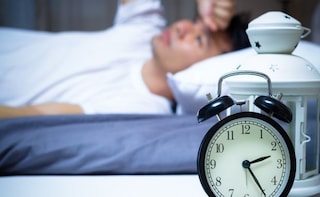So, you're exhausted after a long day’s work and can’t wait to hit the bed and tuck yourself in your cozy blankets. But before you do, think going through your social media notifications wouldn’t harm? Think again. Feel like grabbing a cup of coffee as you lie awake thinking about the scheduled meetings in the coming week? Think again. Wondering if you should finish the series of your long pending TV program? THINK AGAIN. These regular habits and mistakes could be ruining your sleep and eventually causing greater damage to your body.
2. Consuming too much coffee and tea
4. Heavy smokingChain smokers or people who smoke often tend to have very light sleep and reduced amounts of Rapid Eye Movement (REM) sleep.They also have a tendency to wake up after every 3 or 4 hours due to nicotine withdrawal.
6. Staring at a screen before sleepingHave a habit using your smartphone and social media before you go off to sleep? Stop now. The brightness of the screen and your engagement on the phone, delays your brain from powering down. The bright screen blocks the production of the chemical melatonin that helps you fall asleep and overstimulates your brains when it should ready itself to calm down.
7. Hitting the bed when you aren’t sleepy There could be days when no matter how hard you try, but you are unable to sleep. Laying awake in bed for hours is not going to help you fall asleep either. And if your mind is racing with anxious thoughts, it is only going to take longer. Your brain would begin to associate your bed with activities that are not linked to sleeping. And no, staring at the clock when you can't sleep will not help either. It will only make sleeping more difficult as it’ll make you more anxious about the lack of sleep. In such a situation, it is better to get out of the bed and relax yourself, until you are sleepy enough to go back to bed.(Also read: 7 Tips to Help You Sleep Fast)
People who exercise regularly are 65 percent less likely to feel sleepy throughout the day as they are able to fall asleep faster and sleep for longer than those who don't exercise at all. However, it is important that you exercise at the right time, and not sweat it out extensively in the evenings.
2. Consuming too much coffee and tea
Advertisement
Advertisement
4. Heavy smokingChain smokers or people who smoke often tend to have very light sleep and reduced amounts of Rapid Eye Movement (REM) sleep.They also have a tendency to wake up after every 3 or 4 hours due to nicotine withdrawal.
Advertisement
6. Staring at a screen before sleepingHave a habit using your smartphone and social media before you go off to sleep? Stop now. The brightness of the screen and your engagement on the phone, delays your brain from powering down. The bright screen blocks the production of the chemical melatonin that helps you fall asleep and overstimulates your brains when it should ready itself to calm down.
7. Hitting the bed when you aren’t sleepy There could be days when no matter how hard you try, but you are unable to sleep. Laying awake in bed for hours is not going to help you fall asleep either. And if your mind is racing with anxious thoughts, it is only going to take longer. Your brain would begin to associate your bed with activities that are not linked to sleeping. And no, staring at the clock when you can't sleep will not help either. It will only make sleeping more difficult as it’ll make you more anxious about the lack of sleep. In such a situation, it is better to get out of the bed and relax yourself, until you are sleepy enough to go back to bed.(Also read: 7 Tips to Help You Sleep Fast)
8. Sleeping On Your Stomach
Advertisement
People who exercise regularly are 65 percent less likely to feel sleepy throughout the day as they are able to fall asleep faster and sleep for longer than those who don't exercise at all. However, it is important that you exercise at the right time, and not sweat it out extensively in the evenings.
For the latest food news, health tips and recipes, like us on Facebook or follow us on Twitter and YouTube.
Advertisement
